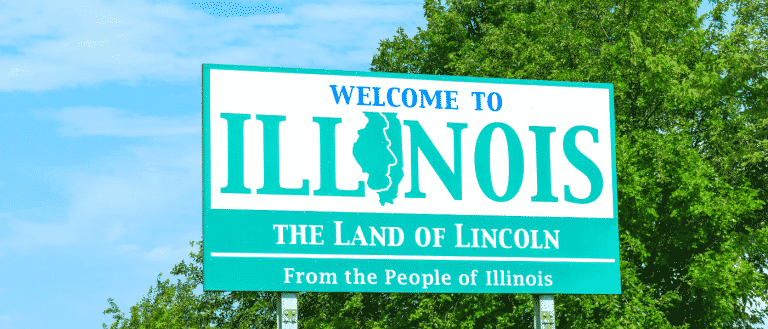Colorado Sports Betting Exceeding Expectations: For Now

Colorado’s Proposition DD, passed in November 2019, legalized sports betting in the Centennial State. One of the big beneficiaries was the Colorado Water Conservation Board (CWCB).
According to the CWCB website, their mission is “to conserve, develop, protect and manage Colorado’s water for present and future generations.” Eighty years running and almost fully self-funded, the CWCB represents every water basin in the state.
The Colorado sports betting legislation was tied to the CWCB in the referendum:
Shall state taxes be increased by twenty-nine million dollars annually to fund state water projects and commitments and to pay for the regulation of sports betting through licensed casinos by authorizing a tax on sports betting of ten percent of net sports betting proceeds, and to impose the tax on persons licensed to conduct sports betting?
As the oddly-worded referendum notes, the legislation earmarks a 10% tax on all sports betting winnings, specifically to fund the implementation of the State Water Plan. However, the stipend would only come into play after the state recovered its more than $2 million in startup costs, with other funds like the Division of Gaming also getting their share of the money first before funds trickled down to the water plan.
So far, Colorado is beating expectations, but reaching that $29 million figure is going to be a tall order.
Colorado Sports Betting Revenue Already Exceeding Projections
Shortly after legislation passed, Colorado Gov. Jared Polis warned that state analysis indicated tax revenue would only generate between $1.5 million to $1.7 million in tax revenue throughout its first fiscal year of operation between July 1, 2020, and June 30, 2021. Such a number, Polis stated, would not be enough to cover the $29 million annual payments, meaning that the CWCB would be left high and dry in its first year.
But by the end of December 2020 (and just halfway through the fiscal year), Colorado had already collected more than $3.4 million in sports betting tax revenue, more than doubling the Polis administration’s projections. During that time, Coloradans wagered more than $1.1 billion on sports.
State House Speaker Alec Garnett (D) confirmed the success: “It’s a sign that we built a healthy, competitive, regulated marketplace.” He also was the one who introduced the legislation in 2019.
Is Colorado Set-Up for Long-Term Success?
When Polis’ administration came out with their projections, it was in response to a much higher original estimate. Initial forecasts for the first fiscal year of sports betting were as high as $9.7 million to $11.2 million. The high end was more than six times greater than the analysis that estimated just $1.7 million.
That original projection of $9.7-plus million is out of reach, as is the annual $16 million estimates during the first five years of legalized sports betting. Despite that, Garnett is confident that numbers will continue to rise as the market matures and more competitors enter the space, making those projections still very much within reach.
“We’re happy with the numbers, and it’s definitely a little more than we projected, especially after COVID hit,” state Department of Revenue spokeswoman Suzanne Karrer said of the matter. Even with COVID creating shortened seasons in sports such as baseball and hockey, sports bettors are happy to engage in the newly regulated market with whatever opportunities they get.
However, the state’s bawdy wagering and revenue numbers aren’t producing anything close to a 10% sports betting tax rate in Colorado thanks to sportsbooks’ ability to deduct promotional play from their tax burdens and carryover losses to the following month.
As Betting USA reported:
Essentially, the state adds free-play and promotional wagers to the total betting handle but allows operators to deduct promotional play (as well as the .25% federal excise tax on all wagers placed) before it takes its 10% cut of gaming revenue.
Without the free-play deduction and loss-carryover, the state would have received around $1.68 million in October. Instead, it took in just about half that amount.
Revenue Not Expected Until 2022
Though numbers have exceeded the minimum threshold for the CWCB to begin receiving its 10% share, the Denver Post reports that money will not make its way to water projects until 2022.
The delay is primarily due to uncertainty in how consistently the tax revenue will continue to come, as the fiscal year does not end until June 30, more than four months from now. As such, the CWCB is in the process of revising its statewide water plan before distributions are made. In other words, there’s still no certainty as to how much money will be available for new water projects.
Other budget deficiencies also play a role, including those related to COVID expenses from the past year. Regardless, Colorado still faces plenty of water-related hurdles, especially as its population is expected to keep growing in the coming decades, continuing its trend with the nation’s eighth-fastest growth rate between 2010-2019.
The estimated continued growth between 2020 and 2050 makes a stable water supply for Colorado residents a priority. Despite snowfall in Colorado’s mountainous regions being a contributor, the state is mostly semi-arid and continuously in short supply of water.
Estimates conclude $100 million annually is needed to ensure an abundant water supply for the state, something that sports betting tax revenue appears to only be a small percentage of, regardless of how big the industry grows.







